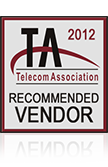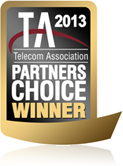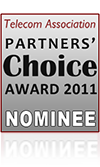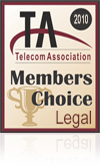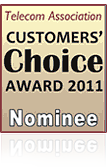State VoIP Licensing
While state regulation of VoIP services remains relatively streamlined, state tax and assessment levies are growing increasingly complex. State regulation of VoIP generally encompasses consumer protection issues, E911, CPNI and general business law principles.
A handful of states require upfront registration from a VoIP provider before commencing the provision of VoIP services.
VoIP Licensing Lawyer
A knowledgeable telecommunications attorney can guide you through the complex rules and regulations that states can have for VoIP providers. Ben Bronston is nationally recognized as an expert in telecom law. With more than 20 years of experience in the practice, he can help you with your VoIP’s state licensing needs. Call Ben Bronston – Telecom/IT Lawyer today at 888.469.0579 to set up a consultation.
State VoIP Taxes and Fees
State Taxes
State tax and assessment laws are either worded broadly enough to already encompass VoIP services, or states increasingly and aggressively take the position that such tax and assessment laws apply to VoIP services since they are a substitute for conventional telephony services. The net effect of this is that a varied array of taxes and assessments, which differ on a state-by-state basis, potentially apply to VoIP services. These taxes and assessments need to be carefully examined, individually and on a state-to-state basis, to determine applicability.
As a general rule, the following taxes and assessments apply to VoIP services:
- Sales and use taxes;
- Gross receipts taxes;
- Excise taxes;
- Franchise taxes;
- Utility taxes;
- E911 surcharges; and
- Various state and local assessments and charges.
By way of example, Illinois assesses a 8.65% telecommunications excise tax applicable to all gross charges assessed by a provider to a service address within the state of Illinois. The tax specifically applies to VoIP services. Pennsylvania applies a 6% sales tax to all telecommunications services, including VoIP services. In 2005, the Pennsylvania Department of Revenue issued a sales tax bulletin which concludes that VoIP is a taxable telecommunications service subject to Pennsylvania state and local sales tax.
State taxation and regulation of VoIP services is an evolving area and considerable ambiguity and confusion remains. In the case of nomadic VoIP services, one such issue is which taxing jurisdiction’s laws to apply.
For example, with nomadic VoIP, a customer can access the internet to make a call from any broadband connection, which means that calls can originate in multiple states. Is the call tax based upon where it originates, the customer’s primary place of use, or the customer’s billing address? As a result of federal legislation, mobile service providers apply taxes based upon specific sourcing guidelines, but no such definitive standard has been established for VoIP services.
Fees for 911 Services
Another complex area for VoIP providers is the payment of 911 fees. In many cases, states delegate 911 assessments to local authorities which collect the surcharges and administer local 911 funds.
For example, in Illinois, each county or municipality administers its own 911 fund, each having its own assessment amount, for which payments are remitted. Such a regime can result in the need for tracking and remitting assessments in dramatically different ways down to the municipality level throughout a given state.
By contrast, federal assessment mechanisms, covered above, are relatively clear-cut. They encompass USF assessments, the payment of TRS, NANPA, and LNP, as well as FCC Regulatory Fees. Unlike state assessments and taxes, relatively clearly defined forms and methodologies exist for federal assessments and remittances.
Entering the market as a VoIP provider entails a wide range of federal legal and regulatory considerations, both upfront and on an ongoing basis. This challenge is compounded by a complex array of state tax and assessment obligations, which must also be satisfied. An experienced telecom lawyer can assist you through these regulatory matters.






